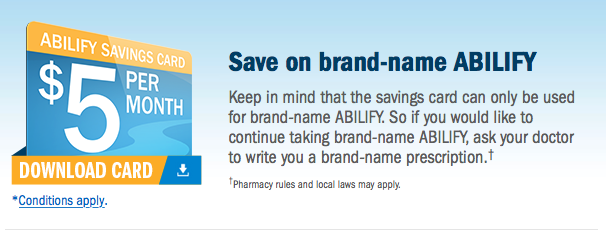
The astronomical prices of many medications has become a hot topic, especially with the recent development of the now-infamous EpiPen controversy. At first glance, it’s difficult to understand not only how these drugmakers can get away with charging such high prices, but how anyone can even afford to buy these expensive medications in the first place. Although the vast majority of Americans can’t afford to pay $300 or $400 (or more) a month for their medicine, a closer look reveals that these huge price tags are often inflated by drugmakers as a bargaining tactic in the escalating war between drugmakers, insurance companies, and PBMs. As that war continues to heat up, drugmakers have harnessed a remarkably effective weapon to keep their high-priced drugs accessible to anyone who has a private insurance plan: manufacturer coupons. While these coupons enable anyone with a private insurance plan to be able to afford expensive brand meds, they may be causing serious harm both in the short term and to the future of healthcare.
The Real War on Drugs
By the year 2000, nearly every major health insurance company had given up trying to fight the drugmakers and turned over their prescription management to companies called PBMs (Pharmacy Benefit Managers). PBMs act as a negotiator for an insurance company and its customers, bargaining with pharmacies and with drugmakers to get those customers discounted prices on drugs. Representing millions of customers across dozens of insurers gave PBMs considerable bargaining power against drugmakers. As a response, in the last decade drugmakers began aggressively setting higher prices for their latest and greatest blockbuster medications to try and take back some of the profits that they had begun to lose. PBMs reacted by increasing the prices that their customers pay for brand drugs as an economic incentive for customers to choose generic medication over branded. They strategized that if their customers had to share a big chunk of the cost for branded medications, they would choose less expensive generics which would save both the customers and insurers money.
Unfortunately, drugmakers responded by unleashing coupons that covered nearly all of the customer’s portion of the pharmacy bill for an expensive drug—as long as the patient had a private insurance plan.
As an example, let's say you have insurance through your company and you want to fill a prescription for Abilify without a manufacturer’s coupon. Even with a good private insurance plan, your share of the bill before you hit your deductible would be $800, and your insurance company would likely be paying at least another $800. It doesn’t take an expert to realize that very few people can afford to pay $800 a month. Without a coupon, most people would either switch to a generic or ask their doctor for an alternate medication. Score one for the PBM.
ENTER THE COUPON

Now let's say you want to fill the same prescription, but this time, you have a manufacturer’s coupon. All of a sudden your price plunges from $800 down to $5, meaning you are almost certainly going to choose the brand drug over a generic alternative. What you may not know, however, is that your PBM and insurance plan are still on the hook for their side of that $800 price tag. Score one for the drugmakers.
This manufacturer’s coupon phenomenon has gone from a trend to the new norm. Some of the most common (and profitable) drugs in America are listed below, along with their coupon price. The cash price is what someone who has no insurance would be charged, while the coupon price is what someone with a private insurance plan would pay when using a manufacturer’s coupon. If and when a Medicare patient enters the coverage gap, they would likely end up paying just under 50% of the cash price.
| Medication | Cash Price | Price w/ Manufacturer's Coupon |
|---|---|---|
| Abilify | $900 | $5 |
| Crestor | $270 | $3 |
| Lantus | $400 | $25 |
| Xarelto | $440 | $0 |
| Nexium | $280 | $15 |
| Eliquis | $420 | $10 |
| Januvia | $440 | $5 |
| Epipen | $650 | $350 |
While many people already weary from rising healthcare costs won’t lose any sleep over their PBM and insurance plan having to foot the entire bill for an expensive medication, there are some real negative consequences. One issue is that the manufacturer's coupon oftentimes doesn't work more than once, and is only intended to get a patient "on drug" as a manufacturer would say. Even for coupons that work more than once, although customers save money in the short term, using the coupon essentially guarantees that PBMs and insurance companies will increase insurance premiums for everyone, even those who don’t take expensive medications. The most disconcerting issue, however, and the reason why we hear of so many people being faced with laughably high prices for medications, is that Manufacturer Coupons can't be used by anyone on Medicare or by anyone who is uninsured. There are 33 million Americans who still lack health insurance and another 40 million who have prescription insurance through Medicare. That means that over 70 million of the most vulnerable Americans—many of whom are more likely to either face illness, poverty, or both—must deal with the harsh reality that they simply aren't able to access medication that’s new and/or expensive, regardless of medical necessity. Although RefillWise may not save you $795 on a $800 price tag, it can be used by anyone, regardless of whether or not they have insurance. You can also rely on RefillWise to be used as many times as you like as it never expires.



 Back to blog home
Back to blog home